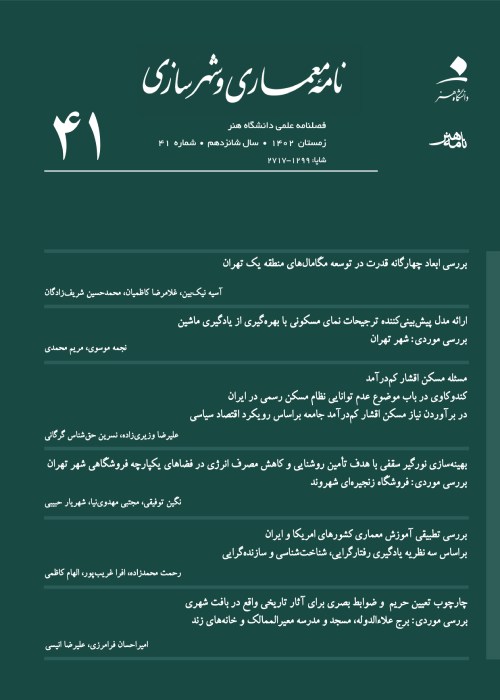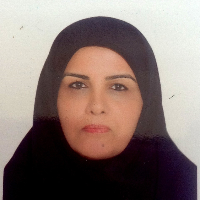Presenting Community-Led Urban Management Pattern for Mashhad
Author(s):
Abstract:
A new deal in the field of concepts and viewpoints about urban management was made by new challenges and problems due to extension of urbanization and globalization. That deal intends tomake a mutual linkage between urban management and political and socio-economic structures and therefore changes therole of urban management from delivering different services to attract public participation. In these conditions, urban planning and management make a great attention to lower levels and tangible dimensions of city life and use each community as a tool for managing cities, making sustainable development and social solidarity and creating identity and character. Also a pervasive approach can be recognized which intends to use the human resources and financial ones by assigning the major role to the community; this attitude is called the community-led approach. Recognizing the major characteristics of this approach, adjusting it with Iran and conditions of Mashhad city in Iran, and representing a pattern for implementation of the community-led approach in this city as well as feasibility study of this pattern are the purposes of this research. In this research the recourses about community-led approach are studied, and the basis and principles are recognized; then the research studies the characteristics and the role of them for realizing this approach. After that, on the basis of study results and interviews whit Mashhad urban management experts, it represents a pattern that consist, of many factors, parameters and indicators of community-led approach and tests this pattern by selecting two communities in the city, according to the physical-social typology of Mashhad communities. Finally, by analyzing the results, the article, represents a pattern and some strategies and methods for implementation of community-led approach in the structure of Mashhad urban planning. Study of basis and principles of community-led approach shows that it can be explained by four viewpoints; consist of community theory, participatory approach, asset based approach and social capital theory. The survey shows that two major factors, including community and urban management, have critical roles in implementation of the mentioned approach and urban management, because of starting this process, has a similar role. Hence, amplification of information systems of urban management, training the participatory methods, making community meetings with urban authorities, establishing a community council and a community management organization, and trying to reach the community planning are among the most important steps to implement the community led approach in Mashhad. In conclusion, feasibility study of community-led approach in Mashhad shows the lack of many indicators and the tough implementation of this approach in this city. Since the most of significant criteria in this pattern are in the field of urban management tasks, it can be expected that recognition, understanding and real intention to implement the community-led approach by urban management, make the realization of this approach possible and convenient.
Keywords:
Language:
Persian
Published:
Journal of Architecture and Urban Planning, Volume:3 Issue: 5, 2010
Page:
63
magiran.com/p1161681
دانلود و مطالعه متن این مقاله با یکی از روشهای زیر امکان پذیر است:
اشتراک شخصی
با عضویت و پرداخت آنلاین حق اشتراک یکساله به مبلغ 1,390,000ريال میتوانید 70 عنوان مطلب دانلود کنید!
اشتراک سازمانی
به کتابخانه دانشگاه یا محل کار خود پیشنهاد کنید تا اشتراک سازمانی این پایگاه را برای دسترسی نامحدود همه کاربران به متن مطالب تهیه نمایند!
توجه!
- حق عضویت دریافتی صرف حمایت از نشریات عضو و نگهداری، تکمیل و توسعه مگیران میشود.
- پرداخت حق اشتراک و دانلود مقالات اجازه بازنشر آن در سایر رسانههای چاپی و دیجیتال را به کاربر نمیدهد.
In order to view content subscription is required
Personal subscription
Subscribe magiran.com for 70 € euros via PayPal and download 70 articles during a year.
Organization subscription
Please contact us to subscribe your university or library for unlimited access!



